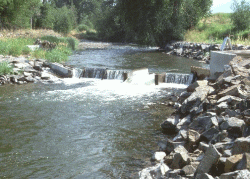- Alabama Agricultural Irrigation Information Network
- Alabama Natural Resources Council: Water Resources
- Alabama Water Watch
- ALEARN: Fisheries & Aquaculture Extension: Natural Resources
- Conservation & Rainwater Collection
- Drinking Water & Human Health
- Education & Outreach
- Environmental Restoration
- Nutrient & Pesticide Management
- Pollution Assessment & Prevention
- Wastewater & Wastewater Management
- Water Conservation & Management
- Water Policy & Economics
- Water Resources Publications
- Watershed Planning
- Workshop & Training Opportunities
- Water Resources Home
Water Policy & Economics
The importance of water to life means that providing for water needs and demands of people will never be free of politics and changing policy issues. Since fresh water is an irreplaceable resource in finite supply, the demands for clean water are steadily increasing as the world's population and industrial activities continue to grow. This growing demand for fresh water is leading to evolutionary changes in how water is managed. Traditionally, water has been highly subsidized and provided at little or no cost to various segments of our society. The rationale for this has been that water is the basis of life and should be free to all. However, the growing demand for clean water, coupled with increased competition and conflict, is causing water to move from a publicly managed resource to an economic commodity.
The water industry, which supplies potable water, is undergoing consolidation, privatization and other market competition changes, similar to what happened with gas, electricity and telecommunications industries since the 1980s. Greater emphasis is being placed on the economic value of high quality water, the costs of pollution prevention, and we are beginning to rethink water pricing and allocation policies that can better deal with issues such as scarcity, conservation and sustainable water utility infrastructure funding. Plus, greater emphasis is being placed on maintaining specific stream flow volumes to sustain wildlife habitats and other natural environments.
We can expect to see more conflict as water becomes a more precious commodity, even in relatively water rich states like Alabama. Numerous strategies will likely be explored on how to best price and market water so that it is affordable to everyone. Local water authorities may completely disappear or they may become more involved in water management and allocation as well as more involved in pollution control and abatement programs, especially at the watershed level.
Water Policy and Economics for Your Watershed:
 No matter where you live, work or recreate, and irregardless of the water source or type of system that supplies your everyday needs - there will always be water quantity and quality policies to deal with. Water is not a static resource and it can be readily moved from one place to another. However, both water quantity and quality, as impacted by the activities of people, can best be monitored on a watershed basis. Therefore, many policies that relate to both consumptive (withdrawal) uses and non-consumptive (non-withdrawal) uses of water under changing economic and environmental constraints can best be applied on a watershed basis.
No matter where you live, work or recreate, and irregardless of the water source or type of system that supplies your everyday needs - there will always be water quantity and quality policies to deal with. Water is not a static resource and it can be readily moved from one place to another. However, both water quantity and quality, as impacted by the activities of people, can best be monitored on a watershed basis. Therefore, many policies that relate to both consumptive (withdrawal) uses and non-consumptive (non-withdrawal) uses of water under changing economic and environmental constraints can best be applied on a watershed basis.
Your watershed has limits on its fresh water resources, and these limits may already be causing conflicts between the primary consumptive and non-consumptive uses. General information on the availability of fresh water supplies in your watershed is a good starting point to help you understand that fresh water is a finite resource that impacts most human activities within the watershed. A number of local authorities or state agencies can assist you in obtaining water resource and water use information. You will learn the difference between consumptive and non-consumptive water uses, and how water from non-consumptive uses can be recycled for additional uses. You will learn that the sustainability of most human related activities in your watershed, as well as future economic growth and development, all depend on the availability of adequate fresh water resources. One of the primary attractions for any added industry to your watershed will be the availability and cost of fresh water resources.
Sustainable economic growth and development in your watershed will depend on local as well as state, regional and national policies to maintain good water quality, while making the most effective use of the water resources available in your watershed. Good quality water for industry, agriculture and potable uses are extremely important. But availability of good quality water for fishing, recreational uses and just general pleasure and scenic appeal are much more important to the economy of an area than most persons realize. Tourism and recreation dollars are highly dependent on the quantity and quality of local lakes within your watershed.

 Menu
Menu



